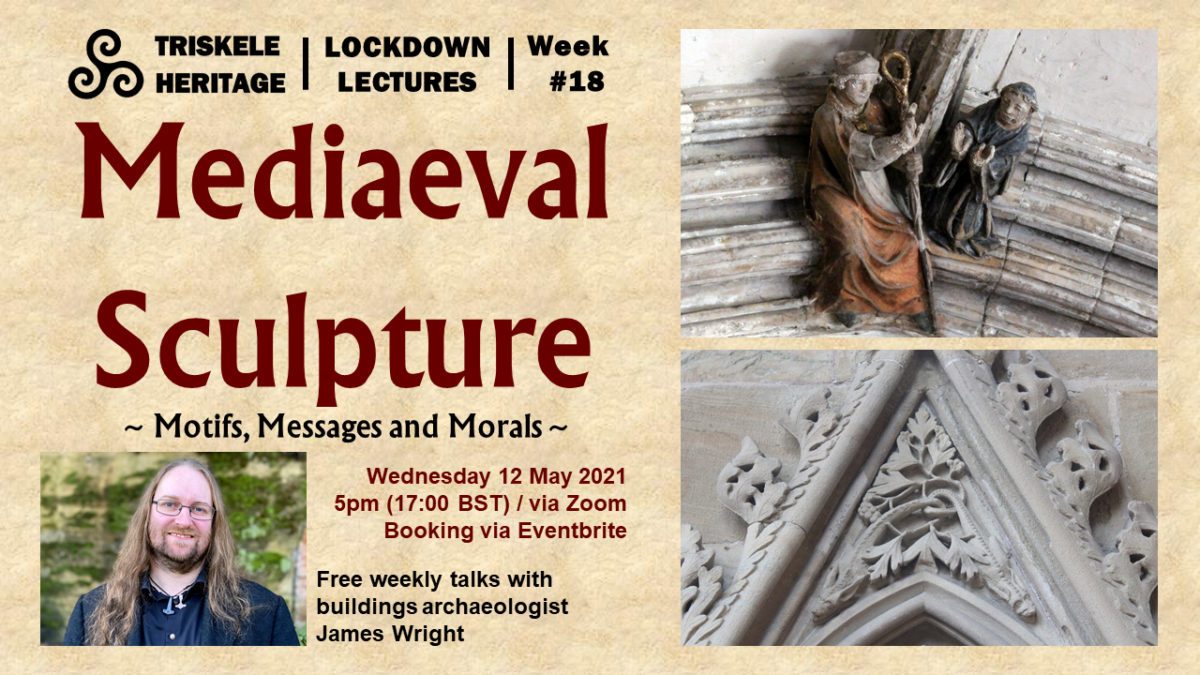With the onset of Britain’s third covid-19 lockdown within a year, Triskele Heritage will be stepping up to try and provide some (hopefully) entertaining and informative free public talks. The weekly lockdown lectures will feature the fruits of our research so you can be sure that the content will all be bang up to date!
Each week we will host a lockdown lecture freely accessible to anyone with a web connection via Zoom. All you need to do is register via Eventbrite and – when the time for the talk rolls around – grab your favourite beverage of choice, get comfy and enjoy.
Our next event will take place at 17:00BST on Wednesday 12 May 2021 and will focus on Mediaeval Sculpture – Motifs, Messages & Morals.
This will be the very last talk in the series. Please note that it takes place on a Wednesday rather than our usual Thursday. This is to avoid a clash with another client event.
Booking is now available via Eventbrite.

Due to our licensing agreement with Zoom tickets for each event will be limited to 495 places. If you cannot make it after booking, please do return your ticket so that someone else can enjoy the talk instead.
Please note that this is a live event only and there will not be a recording of the talk available afterwards.
If you have a question about the event – in the first instance please see our FAQs section. The answer will almost certainly be in there.
More information on the talk
An assessment and analysis of how stonemasons worked with their patrons to create meaningful imagery upon buildings which can give us a unique insight into the mediaeval mind. By looking at both sacred and secular architecture we can begin to understand the fascinating, disturbing and sometimes comedic messages imparted to the viewer. Ideas connected to religious texts, morality, lordship, politics and personal identity are covered as we explore how one simple image may have many complex meanings…
The speaker, James Wright (Triskele Heritage) is an award winning buildings archaeologist. He has two decades professional experience of ferreting around in people’s cellars, hunting through their attics and digging up their gardens. He hopes to find meaningful truths about how ordinary and extraordinary folk lived their lives in the mediaeval period.

